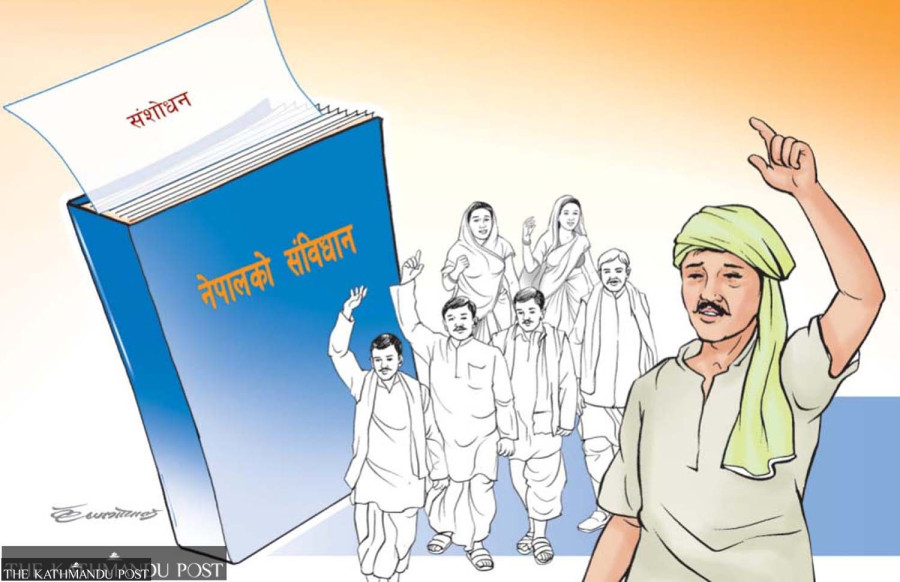Editorial
Losing their grip
The erosion of people’s trust in Madheshi parties is dangerous for all.
There is this tendency in Kathmandu to feign ignorance of the systemic discrimination against Madheshis. Its elites don’t understand how the Madheshis can claim to be discriminated against even after the new constitution has been amended to their liking. Thanks to the 2007 Madhesh Movement, federalism, a key demand of the region, has found a place in the new charter. A system of proportional representation has been introduced at all levels of government. Citizenship laws too have been amended in favour of the Madheshis, many of whom had been disenfranchised by the old unitary state. So where is the discrimination? Well, most recently and most visibly, it was seen in the despicable treatment of the members and supporters of Janakpur Bolts, the winners of the inaugural edition of the Nepal Premier League cricket tournament. At the TU cricket ground, their supporters were verbally abused. Later, after the Bolts lifted the trophy, social media sites were littered with racist comments questioning the nationality of the Madheshi players in the team. No, discrimination against Madheshi and other marginalised groups has not disappeared. They are still very much a part of the Nepali society.
It was against this kind of discrimination that Madhesh erupted in protest in 2007. That year, on the fifth of Magh of the Bikram Sambat, 15-year-old Ramesh Mahato was gunned down in Lahan of Siraha, adding fuel to the Madheshi discontent that had been brewing since the promulgation of the interim constitution on January 15, 2007. Mahato’s killing was instrumental in the success of the first Madheshi uprising. Since, the Madheshi parties and the Madhesh province have marked Magh 5 as ‘Sacrifice Day’. The day is a reminder for Madheshis of all that has been achieved and all that which remains to be done in their quest for rights and dignity. Yet the Madheshi parties, the supposed torchbearers of the Madheshi people, could not even mark the solemn day together, as different parties hosted different functions. If these parties cannot even collectively honour their martyrs, how do they expect common Madheshis to trust them? Notably, the Madheshi parties of all hues are again vowing to fight for the rights of the Madheshi people. But because of their power-centric politics and petty battle of egos, the top Madheshi leaders, both old and new, have steadily lost public support.
This is dangerous. The grievances of Madheshis over citizenship rights, representation based on population, devolution of power and resources, governance and service delivery remain intact. Yet the political parties entrusted with raising these issues seem to be losing credibility. This, in fact, is the case even with the Janamat Party, the relatively new entrant in Madheshi politics which had emerged in 2022 elections with much promise. The old grievances of the Madheshi people will not die down until they get a good hearing. Kathmandu’s elites are often (and rightly) accused of being out of touch with the ground realities of Tarai-Madhesh. But even the Madheshi parties don’t seem to realise that they too could soon be strangers in their own turf. If, tomorrow, a more ‘revolutionary’ group or party who are able to better articulate the needs and desires of Madheshi youth takes their place, they will have only themselves to blame. Nor will the usurpation of Madheshi politics by radicals be in the country’s interest.




 24.09°C Kathmandu
24.09°C Kathmandu














